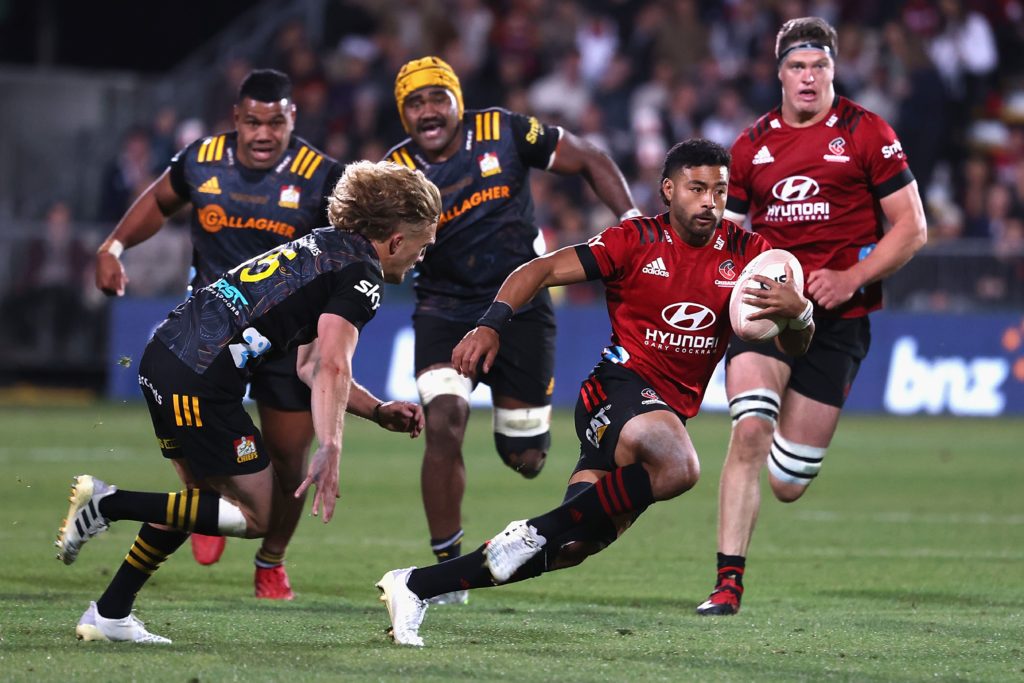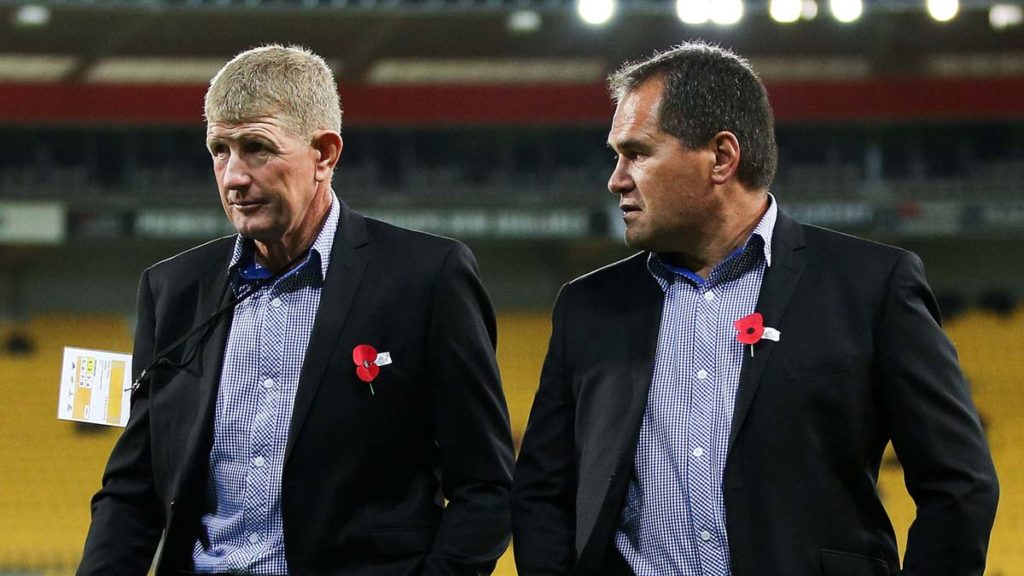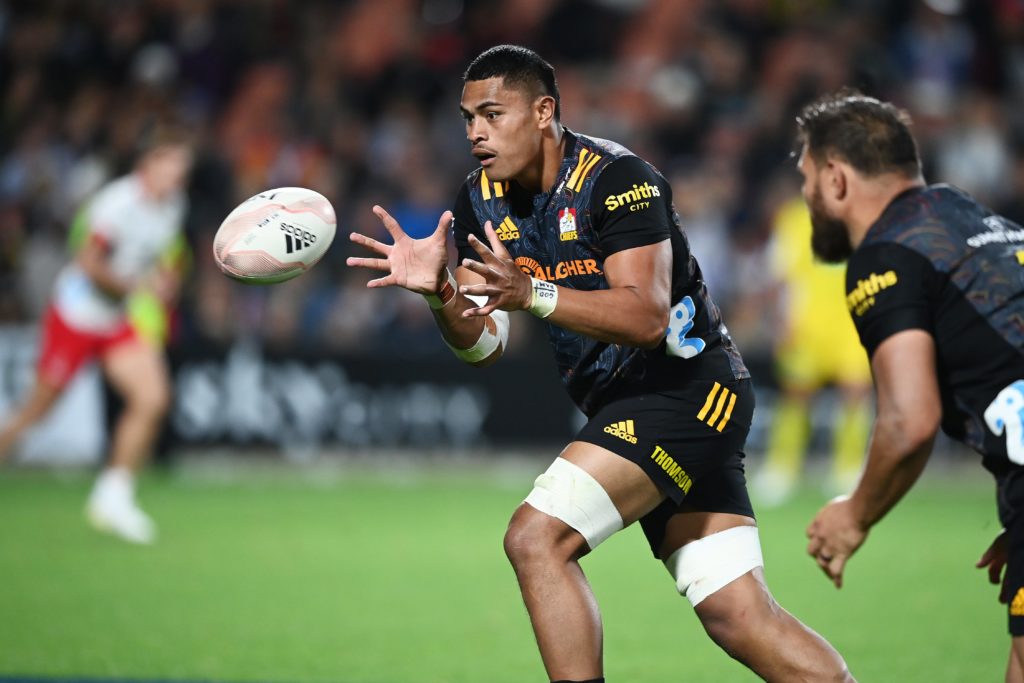Neil Barnes will finish his time at the Chiefs as one of New Zealand’s most respected assistant coaches. But he leaves with one burning regret.
It has been a long shift in Chiefs’ country for the 63-year-old, with a hell of a lot of lessons learned along the way.
During an open and honest conversation with The XV shortly after announcing that the 2021 season will be his last as assistant coach of the Chiefs, Barnes didn’t shy away from talking openly about his personal disappointment that the team came so close to capturing silverware under his watch.
“The big regret is that I haven’t been able to get this team across the line,” Barnes reveals. “Not winning really hurts. I remember back in 2017 when our boys played an awesome game of footy down in Christchurch and didn’t have an ounce of luck go our way.
“Even in the Aotearoa final this year I felt the same. If we nailed a couple of the moments we should’ve we might not have lost – so the regret really is just not getting across the line.”
Those two matches in Christchurch, one a semi-final and the other a final, saw the Chiefs put it all on the line but ultimately fall short against the title-dominating Crusaders.

Brutally honest by nature, Barnes has had a primary focus on the forward pack during his time with the Chiefs and has demanded plenty from his gunners over the years.
But behind the scenes, the 63-year-old has tried to give back as much as possible, speaking about the importance of friendship and connection.
“If you build a good relationship with your players, they’ll be willing to learn off you. I’ve found that if you stand further apart and preach to them all the time without having that relationship, the messages don’t get across as well. I’m not there to be everybody’s best friend but I do try to get alongside them and I try to do my level best for them because as soon as they feel that you’re committed to them, most people will be willing to walk with you.”
The camaraderie aspect of rugby is hugely important to Barnes. Unlike many of his Super Rugby coaching peers, the 63-year-old began his helmsman journey during rugby’s amateur era where the emphasis was on enjoying the company of his fellow men and watching them grow into quality human beings, two aspects that don’t always take the highest of precedence in today’s professional game.
I’ve only just started calling myself a coach when people ask me about occupation. For a long time I called myself a farmer because that was my occupation and I love my job on the farm.
Neil Barnes
Traits of the old school is one factor that made the Chiefs a desirable destination for Barnes after his stint with Canada.
“I get a hell of a buzz about seeing guys achieve their potential and watching how they grow as young men transitioning into adults,” Barnes admits. “When I think back on it, joining the Chiefs was such a good fit because Dave Rennie was so strong on being good men as well as quality rugby players.
“I’d always sensed that the Chiefs were playing for something bigger than themselves. I didn’t really have an understanding of how it all worked so I talked to Dave [Rennie] before I came here about the consistency of his men and how passionate they were about rugby.”
Being a professional rugby coach wasn’t exactly the plan for Barnes, but he was already building a strong resume for himself prior to Dave Rennie’s phone call. A dairy farmer in Taranaki, Barnes has always seen his role in rural New Zealand as his true calling.
“It’s a funny concept because I’ve only just started calling myself a coach when people ask me about occupation,” laughs Barnes. “For a long time I called myself a farmer because that was my occupation and I love my job on the farm.
“This rugby part just got a little bit crazy when I agreed to help Kieran Crowley with Canada. I was still farming and would travel over for a couple of months a year but after seven years with them I was going back to the farm and my old life.”

Challenges were many during his time with the Chiefs, especially in the latter half of his tenure when Barnes found himself bringing in and developing a new defensive system for 2019, on top of his usual forwards duties.
The system had been developed overseas and there were some in Chiefs camp that weren’t convinced it was the right direction when the side found itself 0-4 to start that particular campaign.
“I actually brought in a new system from overseas because I thought it could be a point of difference and it didn’t go well to start because we lost our first four games,” recalls Barnes. “I was under pressure because players were searching around for things to fix and I can remember clashing with Anton [Lienert-Brown] over how our defence should run.
“It was a trying time but, as a coach, you’ve got to work through that and trust what you’re doing is right because if you’ve got any doubt in your head then you’re in a lot of trouble. Anton and I are great mates but we couldn’t have gotten through that without a relationship and right now a lot of the New Zealand teams have changed to that system.”
Then in 2020, several departures to the forward pack challenged Barnes to his coaching core.
Brodie Retallick had left for Japan on sabbatical, and then the Chiefs forward pack was dealt two further blows when the experienced and talented duo of Michael Allardice and Tyler Ardron announced they’d be heading offshore.
Young locks were plentiful but the group was extremely light on experience. Names such as Tupou Vaa’i, Naitoa Ah Koui and loose forward Mitch Brown were identified as capable candidates to full in the void, but none were near Super Rugby level.
Those boys have grown plenty since then but right at the moment they’re still one year away from taking it to the next level.
Barnes on the cohort of up-and-coming locks at the Chiefs
To make things worse, this was also the inaugural season of Super Rugby Aotearoa, where matches were at a physical intensity mirroring that of Test rugby.
“It was never my intention to have so many young men all on their own,” says Barnes. “It was just one of those situations where Michael [Allardice] and Tyler [Ardron] had both moved overseas and Brodie got an opportunity to go to Japan so I had a whole heap of young fellas all on their own.
“Those boys have grown plenty since then but right at the moment they’re still one year away from taking it to the next level. When the Chiefs put Brodie amongst them, they’ll have a really good crew with experience so these boys will need to stand up and deliver the goods next year.”

Another challenge Barnes faced came off the field. Working with young and gifted athletes has its dark times, especially in an era of rugby where players are so accessible to the public.
Defiantly old school, it took Barnes by surprise to see some of the struggles younger players were having on social media during the transition into the professional game.
“You’ve got a lot of young men that have made age-grade sides or national age-grade sides and life has consistently been positive with all their feedback on social media being good,” Barnes says.
“All of a sudden they get in a team where it’s not going so well and they start getting so much hate mail. I didn’t realise initially that this goes on but it really affects them because on social media they’ve increasingly got no answer so it was a real growth area for us as coaches and we had to get some of our men to focus on what was inside our shed.
“It’s always been about our culture and those things we need to live by so it was about teaching the young guys to not involve themselves in that sort of outside chatter and listen more to what’s going on around them because that’s where the real support is.”
There might be a fury burning inside him but on the outside all you see is someone that’s calm so he’s able to assess situations and challenge his teammates in a respectful manner
Barnes speaks highly of All Blacks captain Sam Cane
Next for Barnes is a two-year stint as head coach of his beloved Taranaki Bulls in the Bunnings NPC, and for all the amazing memories from his time with the Chiefs, Barnes signed off by speaking about the man he says made the most impact on his time.
“I’ve been really fortunate with the people I’ve worked alongside but if I’m allowed to say, it’s been an awesome experience to work with someone like Sam Cane,” Barnes says.
“His leadership is unparalleled and he’s taught me plenty. He sees the game very clearly and is ice cool in pressure situations. There might be a fury burning inside him but on the outside all you see is someone that’s calm so he’s able to assess situations and challenge his teammates in a respectful manner.
“Sam also knows that points can be lost in emotion when there is too much of it going on. He’s organised in what he says to the team and he keeps the messages simple, if he needs to haul someone into line he will but its always from a place of care because when you actually care about each other you aren’t bashful about letting someone know if you don’t think something’s right.”


Comments
Join free and tell us what you really think!
Sign up for free